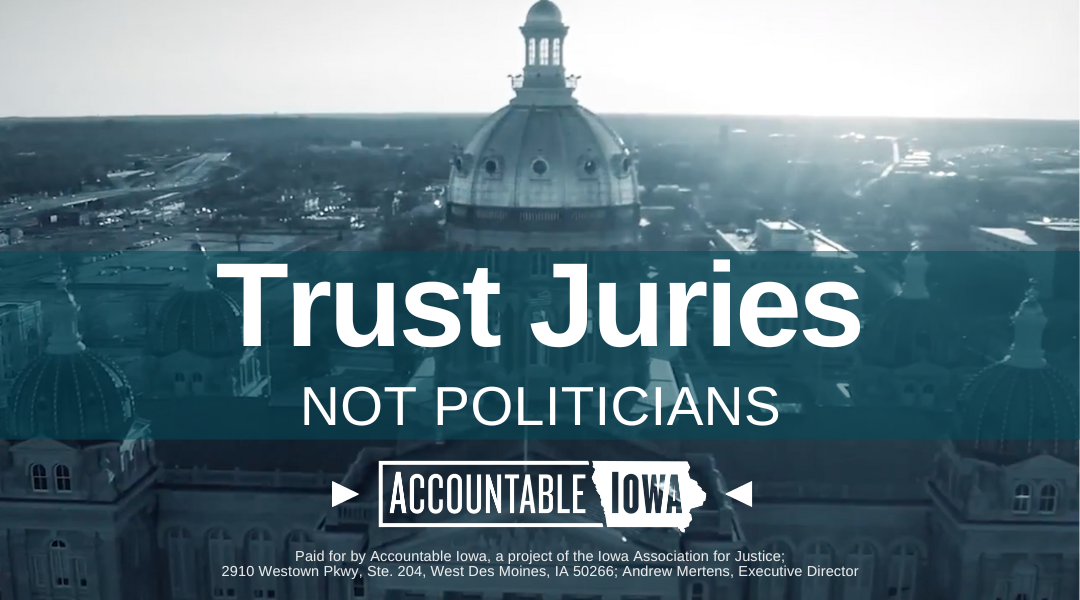Excerpt of Rep. Isenhart’s newsletter:
Hotels and motels in Iowa that teach employees about human trafficking can continue doing business with the state, counties, cities and schools, according to a bill I introduced last week with Rep. Lindsay James.
The incentive created in House File 455 supports efforts by a Dubuque coalition and other advocates to combat human trafficking.
Human trafficking is the practice of illegally transporting people from one area to another for forced labor or sexual exploitation. Hotels and motels often are sites where victims of trafficking can be identified.
The bill requires the state Department of Public Safety to develop or approve programs that, when completed, would qualify lodging facilities to host publicly-supported events and rent rooms to guests paying with public funds.
The department would work with other governmental agencies, community organizations, victim assistance programs and law enforcement agencies, as well as with the Iowa Lodging Association.
The training focuses on identifying, reporting and responding to suspected human trafficking. Required content would include an overview of human trafficking, state law on human trafficking, how to recognize potential human trafficking victims and human traffickers, and how to identify activities commonly associated with human trafficking.
Most important, the training will teach employees about safe and effective responses to human trafficking situations, including how to report suspected human trafficking to law enforcement officials.
In order to qualify to serve state and local governments and public employees, hotels and motels would have to complete the requirement by January 2022. The certification would have to be updated every two years for new employees. The State of Iowa would maintain a public database of qualified facilities, and lodgers would be able to display signs and otherwise advertise a seal of certification.
Addressing this human slavery in Iowa is a priority, so we can show we are serious by using our power to spend public money in a way that supports our values. We have seen progress by concerned parties in the trucking services industries. I think we can fairly ask leaders in hospitality services to join the effort in a concerted way.
Rep. James, a member of the House Human Services Committee adds: “As we work with law enforcement to bring human traffickers to justice and free their survivors, we also need to ensure that health care and other services are available to survivors so they can put their lives back together and reconnect with people who care about them.”
Grand Harbor Resort in Dubuque recently completed educating its workers. Steve Geisz, general manager for Grand Harbor, trained his employees because “we need to provide a safe place for our guests and employees. Knowing that they could be vulnerable meant we had to educate our staff to be ready to help if needed,” he said.
Sr. Mira Mosle represents the Dubuque Sisters of Charity on the Tri-State Coalition Against Human Trafficking and Slavery (TCAHTAS). “Data show that more than 70 percent of sex trafficking occurs in hotels and motels,” according to Sister Mira. “So training hotel staff is key to stemming the tide of this growing crime. Tying state-related events to facilities which have undergone this training sends a strong message that lawmakers are serious about using all the tools possible to minimize situations of trafficking throughout the state.”
Suzanne Wright is executive director of Set Free Dubuque and a member of TCAHTAS. “Educating hotel employees empowers those who stand on the front line of human trafficking assisting the vulnerable,” Wright said. “It is key to stopping this injustice.”
The Dubuque coalition is part of the Iowa Network Against Human Trafficking and Slavery (INAHT), which is sponsoring a state-wide initiative to combat human trafficking in the hotel industry. More than100 lodging facilities in Iowa already have taken advantage of the opportunity.
The bill was referred to the House Public Safety Committee, where it faces a March 8 deadline for action. To encourage its approval, contact Rep. Jarad Klein, chairman of the Public Safety Committee: ([email protected]) and Rep. Linda Upmeyer, Speaker of the House: ([email protected]).












